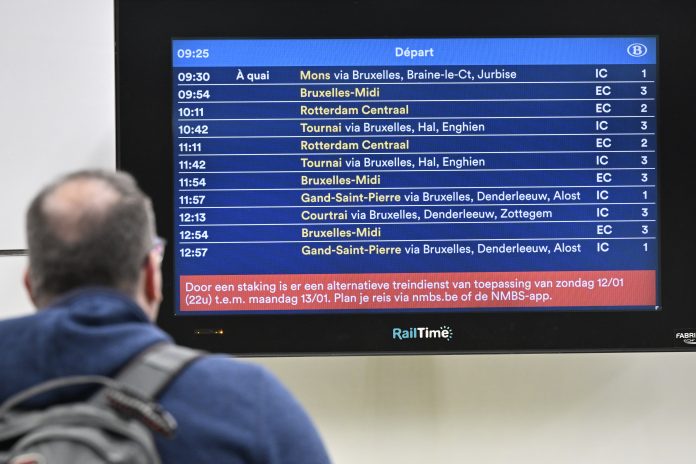Transport workers are taking part in a mass strike, with flights at airports cancelled and city transport routes cut on Thursday.
Belgian trade unions believe that the new federal government’s planned spending cuts “have little to do with getting the budget in order.”
The protest began at 6:45 a.m. at Brussels’ two airports – Zaventem and Charleroi – and will last until 10:15 p.m., which is practically the whole day. Already 460 flights, which were supposed to carry about 60 thousand passengers, have been cancelled.
A united trade union front – socialist trade unions (ABVV/FGTB), liberal (ACLVB/CGSLB) and Christian trade unions (ACV/CSC) – is organising a nationwide demonstration in Brussels to denounce the government’s plans. Around 60,000 people are planned to take part in the march. Many services across the country will be suspended, with major traffic disruptions expected throughout the day.
A month ago, during a similar protest action in Brussels, only one metro line worked, several tram and bus routes did not function. In all regions of Belgium, passengers are advised to seek alternative means of transport. People who are late for work or school because of such disruptions can get a relevant certificate on the websites of transport companies.
Trains will continue to run as usual. Among other things, they are planned to be used to ensure that as many protesters as possible can travel to Brussels. National railway operator SNCB has warned citizens that it expects a large number of passengers on trains to and from Brussels, and for this reason is sending additional trains to the capital.
The post office and the port are also on strike
Postal workers are also taking part in the strike. The timely delivery of Bpost letters and parcels is expected to be disrupted, especially in Brussels.
Disruptions are also possible in the port of Antwerp. Private towing services and container terminals should operate more or less normally, above all in mooring and unmooring ships.
A number of communes across Belgium will not make the planned collection of rubbish. Communal services have already asked people not to take their bags outside. Some waste and recycling collection centres will also close.
Education unions are also taking part in the strike. A month ago, more than 30,000 teachers went on a protest. In theory, schools are supposed to provide free childcare for this period, but if there is not enough staff to supervise, educational institutions may decide to close.
The current nationwide strike is the third under the Belgian trade unions’ action plan. They take place on the 13th of every month and mark the beginning of the protest after the formation of the new government.
